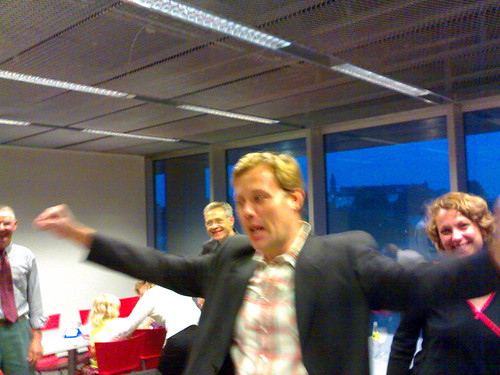Finishing up my dissertation I am naturally curious about methodological requirements in game studies. A general meme seems to be that the field is multi-disciplinary and no clear guidelines can be given and yet, I’ve stumbled upon a few. The following, arguably, are claims about how game studies should be conducted. Make of it what you will…
“Ultimately, the player’s perspective (Jenkins 1999) and understanding of play
must be included in any meaningful discussion of FPS games and, indeed, of
all video games.”
Wright, T., Boria, E., & Breidenbach, P. (2002). Creative Player Actions in FPS Online Video Games. Game Studies, 2(2).
–
“Gamers’ own thinking about styles of play and the identities they underwrite are a conflation of design characteristics and emergent culture of the context of the MMOG they inhabit, situated within the myriad of contexts they
themselves encounter with others, with some configurations of constructs evoked for sense-making in some social/material contexts, other configurations evoked in order to explain others. They are therefore complicated and necessarily messy. Our analyses of them ought to be a testament to this fact.”
and
“Indeed, indepth investigation into the ‘worlds of meaning’ created, maintained, and displayed by so-called ‘end users’ may very well be the only solid foundation on which to theorize a culture so definitively constructivist, heteroglossic, and hermeneutic
(Steinkuehler, Black & Clinton, 2005) as that of games.”
Steinkuehler, C. (2005). Cognition & Learning in Massively Multiplayer Online Games: A Critical Approach. University of Wisconsin-Madison.
–
“In general, any methodological approach which does not take participants as the primary actors produces flawed results.”
Jakobsson, M., & Taylor, T. L. (2003, 19-23 May). The Sopranos Meets EverQuest: Social Networking in Massively Multiplayer Online Games. Paper presented at DAC2003, Melbourne, Australia.
–
“…the essence of a game is rooted in its interactive nature, and there is no game without a player. The act of playing game is where the rules embedded into game’s structure start operating, and its program code starts having an effect on cultural and social, as well as artistic and commercial realities. If we want to understand what a game is, we need to understand what happens in the act of playing, and we need to understand the player and the experience
of gameplay.”
Ermi, L., & Mäyrä, F. (2005, 16-20 June). Fundamental Components of the Gameplay Experience: Analysing Immersion. Paper presented at DIGRA 2005: Changing Views: Worlds in Play, Vancouver, Canada.




